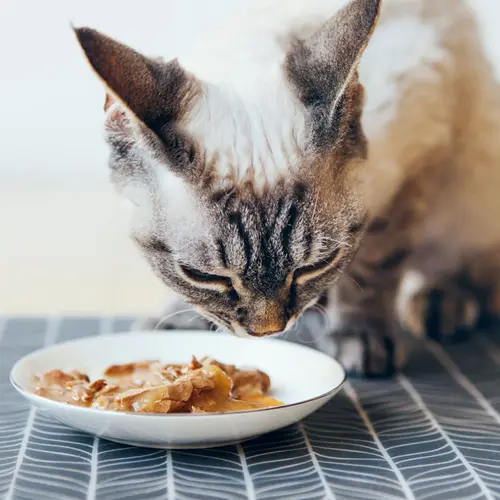Megacolon in cats is a long-lasting condition where your cat’s large intestine — or colon — is consistently stretched out more than it should be. It is usually filled with dried feces.
Megacolon is the most common cause of obstipation in cats. Obstipation occurs when your cat is entirely constipated and cannot pass any feces.
Usually, the colon functions by dehydrating — or taking water out of — digested food material. This creates feces. If the food material remains in the colon for too long, then it becomes extra dry and difficult to pass.
As feces accumulates, the colon stretches in size. Eventually, your cat’s muscles will become too strained to tighten the colon again, and the problem will begin to worsen.
What Causes Megacolon in Cats?
There are two main causes of megacolon in cats. The most common cause is persistent constipation in your cat. This, in turn, can be caused by a number of underlying problems, including:
- A too-narrow pelvis from an old fracture that didn’t heal properly
- Chronic intestinal disease
- Constant dehydration from another condition — like kidney disease
- A blocked intestine from a tumor or large growth
The second main cause of megacolon in cats is a loss of normal nerve function in the large intestine. This weakens the muscles within the organ, and your cat loses their ability to pass feces.
Often, the cause of your cat's megacolon remains unknown, in which case it's called idiopathic megacolon.
What Are the Symptoms of Megacolon in Cats?
The most common symptom of megacolon in cats is constipation. It might take a long time for you to notice, though, that your cat is constipated.
This is especially true in multi-cat households or if your cat is an indoor-outdoor pet. In these cases, you might find it difficult to notice whether or not your cat is consistently passing feces.
Some signs that your cat is constipated include:
- Straining at the litter box for a long time
- Passing small amounts of liquid while all of the solid material remains in the colon
- Vomiting or a loss of appetite due to the buildup of feces
- Abdominal discomfort
- Lethargy
If the constipation is severe, your veterinarian will be able to feel the lump of feces inside of your cat’s body.
If the constipation is left untreated for too long, your cat could become dehydrated. Eventually, untreated constipation will cause enough complications that your cat will die.
Megacolon Treatment in Cats
The treatment for your cat’s megacolon depends on the severity of their condition. The first step that your veterinarian will take is to treat your cat’s dehydration. This could entail an intravenous (IV) infusion of fluids.
The next step is to treat your cat's constipation. Veterinary treatments for constipation vary.
In mild cases, laxatives and drugs that cause contraction in the colon’s muscles will be all that your cat needs. The most common laxative given to cats is called lactulose, and the most common muscle contracting medication is called cisapride.
Adding dietary fiber or administering enemas can also be an effective treatment for mild cases of constipation. Never administer an enema to your cat on your own or without first talking to your vet, as some are dangerous for cats or harmful if misused.
If your cat has a large, immovable mass of dried feces stuck in their colon, then it needs to be manually removed. Your veterinarian will give your cat anesthesia and slowly coax the feces out by massaging the lump towards the anus. Your cat may need several sessions of this process over the course of days.
If the constipation is caused by blockage from badly healed bones, your cat will need to have surgery to relieve the pressure from their colon.
Your cat will also need surgery if their megacolon has become too severe and their intestinal muscles have lost all strength. In this case, most of their colon is removed in a surgery called a subtotal colectomy. This surgery usually cures all of your cat’s symptoms, and constipation doesn’t return.
Megacolon in Cats Prognosis
It’s most likely that your cat’s megacolon will continue to get worse over time if left untreated. Your cat will become constipated more often. Eventually, no other solution will help your cat pass their feces: They’ll need to undergo surgery or die.
Surgery is an expensive consideration. Luckily, most cats make a full recovery from the colectomy and go on to live full and happy lives. There’ll be an adjustment period after the surgery when your cat will have diarrhea, but their bodily functions should return to normal after a few weeks of recovery.

